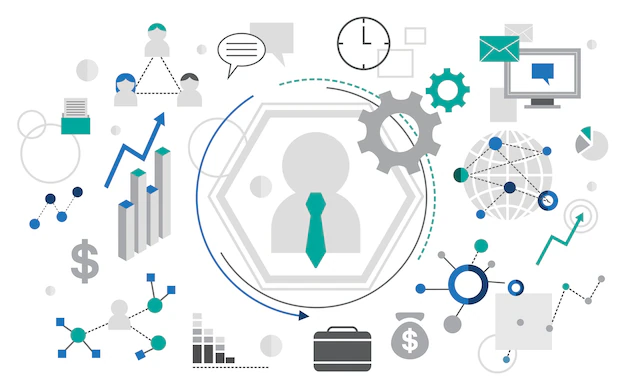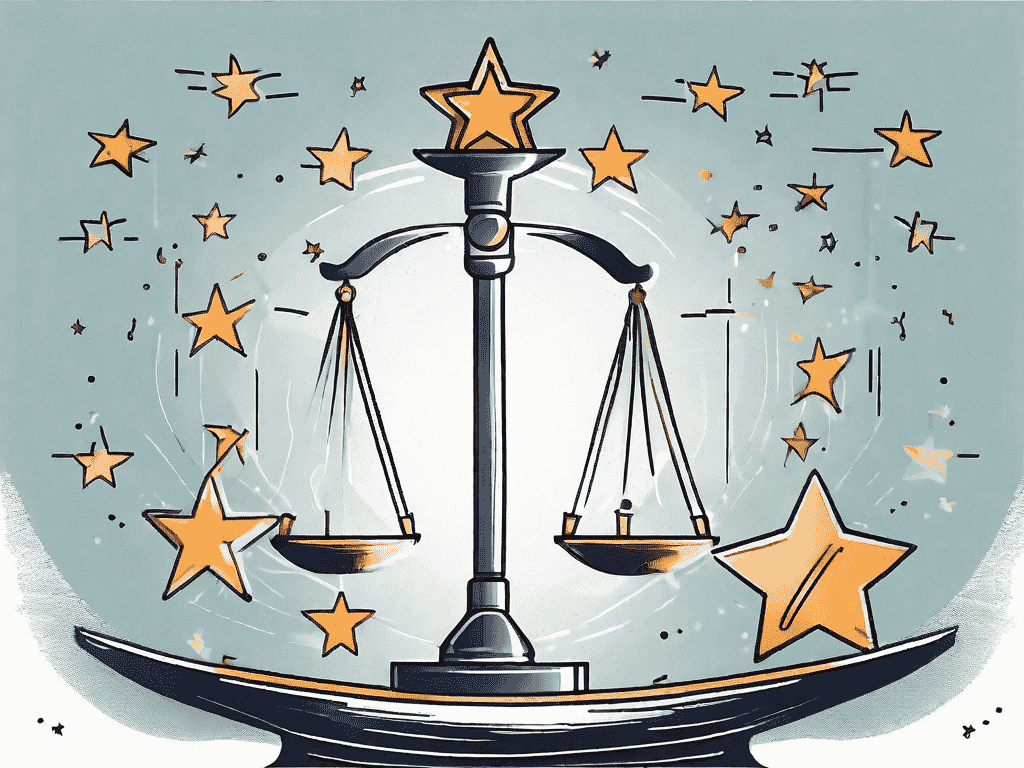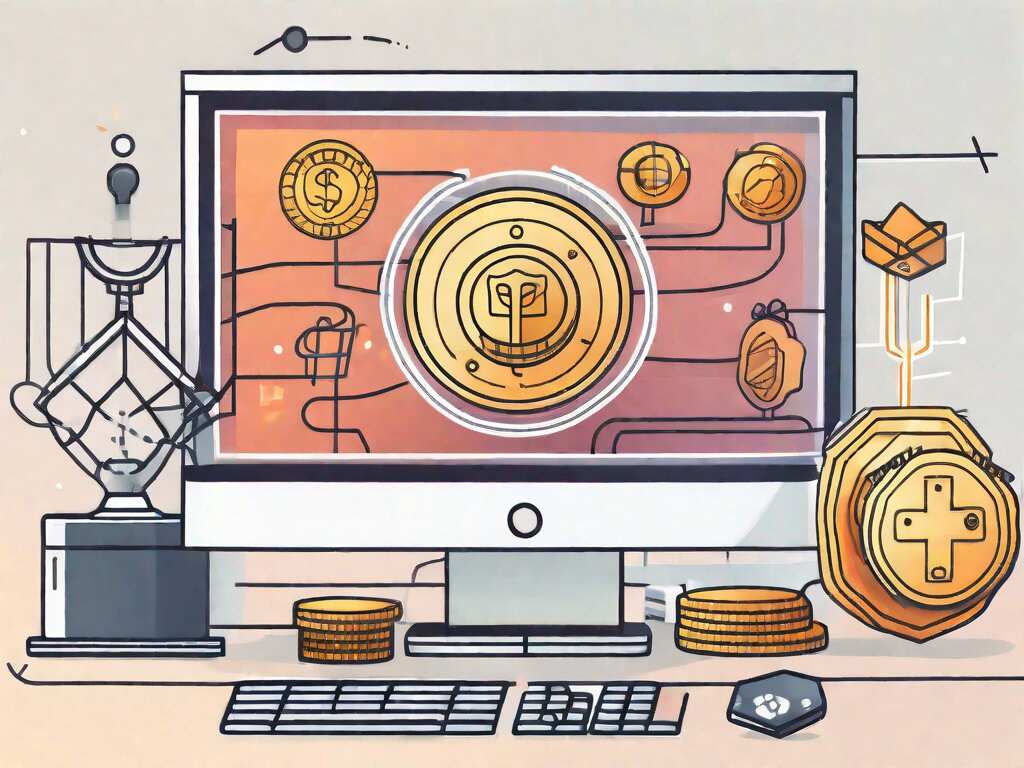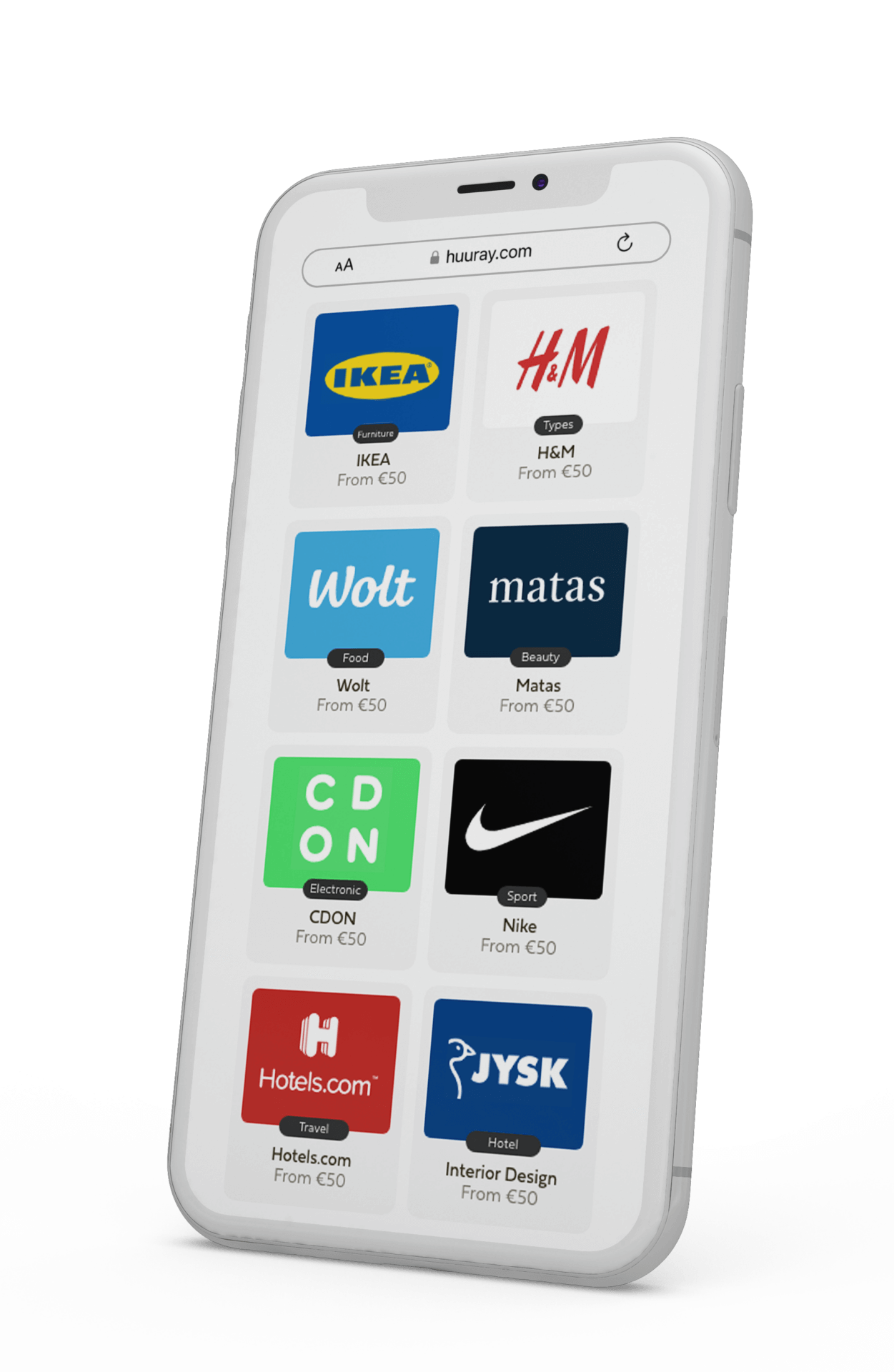35 Tools For Managers: Elevate Your Leadership Game


by Signe Hegart
November 20, 2023
In today’s fiercely competitive business landscape, adept leadership stands as a linchpin for the success of any organization. As a manager, your pivotal role involves not only steering your team but also igniting their potential for optimal performance. Fortunately, a plethora of tools exists to fortify your leadership acumen and propel enhanced results. In this blog post, we’ll delve into 35 tools designed to empower managers across diverse facets of their responsibilities, offering a comprehensive suite of resources to foster effective leadership and provide enticing employee incentives.
Jump to section
What are Tools For Managers?
Tools for managers are software applications, platforms, or resources that assist and enhance a manager’s ability to perform various tasks and responsibilities effectively. These tools are designed to streamline workflows, improve communication, facilitate decision-making, and optimize overall managerial processes. The specific tools a manager might use can vary based on their role, industry, and organizational needs.
Leaders become great, not because of their power, but because of their ability to empower others.
John c. maxwell
Why are Tools For Managers important?
Tools for managers play a crucial role in enhancing efficiency, productivity, and effectiveness in the modern workplace. Here are several reasons why these tools are important:
- Efficiency and Productivity: Tools automate repetitive tasks, streamline workflows, and provide centralized platforms for communication and collaboration. This efficiency leads to increased productivity as managers can focus on high-priority tasks.
- Data-Driven Decision-Making: Analytics and reporting tools provide valuable insights into performance metrics, helping managers make informed and data-driven decisions. This can lead to better strategic planning and resource allocation.
- Communication and Collaboration: Tools facilitate seamless communication and collaboration among team members, especially in remote or distributed work environments. This ensures that everyone is on the same page and promotes a collaborative work culture.
- Project and Task Management: Project management tools help managers plan, track, and coordinate projects effectively. Task management tools allow for better organization of individual and team responsibilities, reducing the risk of missed deadlines or overlooked tasks.
- Employee Engagement and Satisfaction: Tools for employee feedback, recognition, and development contribute to higher levels of engagement and job satisfaction. Managers can better understand and respond to the needs and concerns of their team members.
- Remote Work Facilitation: With the rise of remote work, tools that support virtual collaboration, video conferencing, and remote project management have become essential. These tools enable teams to work seamlessly regardless of geographical locations.
- Strategic Planning and Goal Setting: Tools for strategic planning, goal setting, and performance tracking help managers align team efforts with organizational objectives. This ensures that everyone is working towards common goals and objectives.
- Cost and Time Savings: Automation and efficiency tools save time and resources by reducing manual work, minimizing errors, and optimizing processes. This can lead to cost savings for the organization.
- Adaptability to Change: In dynamic business environments, tools enable managers to adapt quickly to changes in the industry, market, or organizational structure. This adaptability is crucial for staying competitive and responsive to evolving challenges.
Read also: 50 HR Tools That Will Transform Your Talent Management Strategy
Gift Cars and Tools For Managers ????
Gift cards and tools for managers might seem unrelated at first glance, but they can be connected in the context of employee recognition and rewards programs. Many organizations use gift cards as a form of employee rewards and recognition within the broader framework of tools designed for managers. Here’s how they can be related:

Tools for managers often include platforms or software for employee recognition. These tools allow managers to acknowledge and appreciate the efforts and achievements of their team members.

Incorporating gift cards
As part of recognition programs, managers might use gift cards as tangible rewards for employees who have demonstrated exceptional performance or achieved specific milestones. Gift cards provide a flexible and universally appreciated reward.

Tools for employee rewards and recognition
Some comprehensive tools for managers incorporate features for recognition and rewards, which can include the ability to issue and track gift cards. These tools streamline the process of acknowledging employees and offering them tangible incentives.

Boosting morale and motivation
Gift cards, when integrated into tools for managers, can contribute to boosting employee morale and motivation. The act of recognizing hard work and providing a tangible reward adds a personal touch to the managerial process.

Enhancing employee experience
The combination of tools for recognition and rewards, including gift cards, contributes to creating a positive and engaging employee experience. This, in turn, can improve overall job satisfaction and team morale.

Send yourself a gift card
35 Tools For Managers
1. Project Management Software
Trello: Trello is an intuitive and visually appealing project management tool. Its card-based system allows you to create boards for projects, allocate tasks, and track progress effortlessly. The visual nature of Trello makes it easy to grasp the status of various project elements at a glance.
Asana: Asana is a versatile project management platform that allows for the creation of tasks, setting due dates, and organizing projects into different workspaces. With features like timeline and calendar views, Asana provides a comprehensive overview of project timelines and milestones.
Basecamp: Basecamp is an all-in-one project management and collaboration tool. It simplifies communication, file sharing, and task management, making it an excellent choice for teams looking for a centralized platform to coordinate their projects.
2. Performance Management Systems
Workday: Workday’s performance management system provides a comprehensive solution for setting goals, conducting performance reviews, and tracking employee progress. Its user-friendly interface makes it easy for both managers and employees to engage in the performance management process.
SAP SuccessFactors: This cloud-based human resource management system includes robust performance management features. It enables managers to set SMART goals, conduct performance appraisals, and align individual objectives with organizational goals.
3. Communication Tools
Slack: Slack is a real-time messaging platform designed for team communication. Its channels, direct messages, and integrations with other tools make it a powerful hub for discussing projects, sharing files, and staying connected with team members.
Microsoft Teams: Part of the Microsoft 365 suite, Teams combines chat, video conferencing, file storage, and application integration. It’s a versatile platform that facilitates seamless communication and collaboration within teams.
Google Hangouts: Integrated with Google Workspace, Hangouts offers video conferencing, instant messaging, and voice calls. Its simplicity and integration with other Google tools make it a go-to choice for teams relying on the Google ecosystem.
4. Employee Recognition Platforms

Bonusly: Bonusly is a recognition and rewards platform that allows team members to give each other micro-bonuses for a job well done. It fosters a culture of appreciation and motivation within the team.
Kazoo: Kazoo is an employee experience platform that includes features for recognition, rewards, and performance management. Its social recognition tools help reinforce positive behaviors and achievements.
5. Time Tracking Software
Toggl: Toggl is a simple and effective time tracking tool. It allows team members to log their work hours, track projects, and generate insightful reports. With Toggl, managers gain a clear understanding of how time is spent across various tasks and projects.
Harvest: Harvest is a time tracking and invoicing tool that helps managers monitor project budgets, track billable hours, and create professional invoices. It integrates seamlessly with other project management tools, providing a holistic view of project time and costs.
6. Learning Management Systems
Udemy: Udemy offers a vast library of online courses covering a wide range of topics. Managers can leverage Udemy to provide employees with opportunities for continuous learning and skill development, enhancing both individual and team capabilities.
LinkedIn Learning: Formerly known as Lynda.com, LinkedIn Learning provides a personalized learning experience. Managers can recommend courses tailored to individual career paths, fostering a culture of continuous improvement and professional growth.
7. Survey Tools
SurveyMonkey: SurveyMonkey is a versatile survey tool that allows managers to create customized surveys for various purposes, including employee satisfaction, engagement, and feedback. The platform provides insightful analytics, enabling data-driven decision-making based on employee input.
Typeform: Typeform offers a user-friendly and interactive survey-building experience. Its visually engaging forms can be used for gathering feedback on specific projects, team dynamics, or any aspect of the work environment, providing a more engaging survey experience.
8. Virtual Meeting Software

Zoom: Zoom has become synonymous with virtual meetings, offering high-quality video conferencing, screen sharing, and collaboration features. Its ease of use makes it a popular choice for remote teams, enabling seamless communication and collaboration regardless of geographical distances.
GoToMeeting: GoToMeeting is a reliable virtual meeting platform that provides a suite of collaboration tools. Its features include HD video conferencing, screen sharing, and integrated audio options, making it a robust solution for virtual collaboration.
9. Performance Review Software
15Five: 15Five is a performance management platform that facilitates continuous feedback and performance reviews. Managers can use it to set objectives, track progress, and engage in regular check-ins with team members, fostering a culture of ongoing improvement.
Reflekt r: Reflekt r is a performance review tool that emphasizes simplicity and effectiveness. It allows managers to conduct 360-degree feedback, set performance goals, and track achievements, making the performance review process more collaborative and transparent.
10. Goal Tracking Software
Goalscape: Goalscape provides a visual approach to goal setting and tracking. Managers can create dynamic visual representations of individual and team goals, making it easy to monitor progress and ensure alignment with broader organizational objectives.
Weekdone: Weekdone is a goal-setting and tracking tool that focuses on transparency and team collaboration. Managers can set SMART goals, track achievements, and conduct regular check-ins to ensure that everyone is on track and aligned with organizational priorities.
11. Feedback and Performance Improvement Tools
Lattice: Lattice is a comprehensive performance management platform that facilitates continuous feedback, goal setting, and performance reviews. It enables managers to gather insights into employee performance and provides actionable data to drive improvement.
Glint: Glint is an employee engagement and performance improvement tool that uses real-time data to assess and enhance the employee experience. Managers can use Glint to measure employee engagement, identify trends, and implement strategies for improvement.
12. Employee Engagement Platforms

Culture Amp: Culture Amp is an employee feedback and analytics platform that helps managers measure and improve employee engagement. It provides actionable insights based on employee feedback, allowing managers to make informed decisions to enhance workplace culture.
Officevibe: Officevibe is a platform focused on employee engagement and feedback. It uses pulse surveys and feedback mechanisms to gauge employee satisfaction and provide managers with actionable insights to boost team morale and productivity.
13. Leadership Development Programs
FranklinCovey: FranklinCovey offers leadership development programs and training courses. Managers can benefit from these programs to enhance their leadership skills, improve decision-making, and foster a culture of continuous improvement within their teams.
Dale Carnegie Training: Known for its leadership and interpersonal skills training, Dale Carnegie Training offers programs that empower managers to communicate effectively, build strong relationships, and lead with confidence.
14. Task Management Tools
Todoist: Todoist is a versatile task management tool that helps managers and teams stay organized. It offers features such as project organization, task prioritization, and collaboration, making it easy to manage workloads and track progress.
Wrike: Wrike is a powerful project management and task tracking tool that enables managers to organize tasks, collaborate with team members, and monitor project timelines. Its flexibility makes it suitable for a variety of project management needs.
15. Employee Wellness Platforms
Virgin Pulse: Virgin Pulse is an employee wellness platform that focuses on promoting overall well-being. Managers can use this platform to encourage healthy habits, physical activity, and stress management among team members.
Wellable: Wellable offers a holistic approach to employee wellness, providing tools for fitness challenges, mental health resources, and well-being programs. Managers can leverage Wellable to create a culture that prioritizes the health and wellness of their workforce.
16. Succession Planning Tools

SuccessFactors: SuccessFactors, part of the SAP suite, offers robust succession planning capabilities. Managers can identify high-potential employees, create talent pools, and develop strategies to ensure a smooth transition for key leadership positions.
Cornerstone OnDemand: Cornerstone OnDemand provides tools for talent management, including succession planning. Managers can use the platform to assess and develop talent, ensuring a pipeline of capable individuals ready to step into critical roles.
17. Employee Feedback Tools
7Geese: 7Geese is a performance management platform that includes tools for continuous feedback. Managers can use it to facilitate ongoing conversations, provide real-time feedback, and track progress towards goals, fostering a culture of continuous improvement.
Impraise: Impraise is a feedback and performance management platform that enables managers to gather feedback from team members. Its user-friendly interface and features like 360-degree feedback support a comprehensive approach to performance evaluation.
Let’s have a chat
18. Team Collaboration Platforms
Microsoft SharePoint: SharePoint is a versatile collaboration platform that allows managers to create intranet sites, share documents, and facilitate team collaboration. It integrates seamlessly with other Microsoft tools, providing a centralized hub for teamwork.
Monday.com: Monday.com is a work operating system that simplifies team collaboration. Managers can use it to create custom workflows, assign tasks, and track project progress, fostering a collaborative and transparent work environment.
19. Performance Dashboards
Tableau: Tableau is a powerful data visualization tool that allows managers to create interactive and insightful dashboards. It enables visual representation of key performance indicators (KPIs) and helps managers make data-driven decisions to improve team performance.
Domo: Domo is a business intelligence platform with features for creating performance dashboards. Managers can consolidate data from various sources, monitor team performance in real-time, and gain valuable insights to inform strategic decisions.
20. Coaching and Mentoring Software

MentorCloud: MentorCloud is a mentoring platform that facilitates mentorship programs within organizations. Managers can use it to match mentors and mentees, track progress, and create a culture of knowledge-sharing and skill development.
CoachLogix: CoachLogix is a coaching platform that allows managers to provide coaching and mentoring opportunities to team members. It includes features for goal setting, progress tracking, and personalized development plans, enhancing the professional growth of individuals within the team.
21. Team Building Activities
TeamBonding: TeamBonding offers a variety of team-building activities and events designed to enhance collaboration, communication, and team cohesion. Managers can choose activities tailored to their team’s needs and goals, promoting a positive and engaging work environment.
Wildly Different: Wildly Different specializes in creating unique and customized team-building experiences. From virtual team-building games to in-person events, managers can use Wildly Different to strengthen team relationships and boost morale.
22. Leadership Assessments
Hogan Assessments: Hogan Assessments provides tools for leadership assessment, personality evaluation, and talent development. Managers can use Hogan Assessments to gain insights into their own leadership styles and identify areas for growth.
DiSC: DiSC is a popular personality assessment tool that helps individuals understand their behavioral preferences. Managers can leverage DiSC assessments to enhance self-awareness, improve communication, and build effective leadership skills.
23. Employee Recognition Programs
Bonusly: Bonusly is not only a platform for employee recognition but also a tool that fosters a culture of continuous appreciation. Managers can use Bonusly to encourage peer-to-peer recognition, reward accomplishments, and reinforce positive behaviors.
Kudos: Kudos is an employee recognition platform that allows managers to acknowledge and celebrate achievements within the team. It provides a centralized space for recognizing and promoting a positive workplace culture.
24. Employee Onboarding Software

BambooHR: BambooHR includes features for employee onboarding, making the process smoother for both managers and new hires. It centralizes onboarding tasks, facilitates document management, and helps ensure a consistent and positive onboarding experience.
Workday: Workday’s human resources management system includes tools for employee onboarding. Managers can use Workday to automate onboarding processes, track progress, and ensure that new hires integrate seamlessly into the organization.
25. Employee Benefits Management
Zenefits: Zenefits is a comprehensive platform that streamlines employee benefits management. Managers can use Zenefits to manage benefits administration, track employee enrollment, and ensure compliance with regulations.
Gusto: Gusto offers a user-friendly platform for managing payroll, benefits, and HR tasks. It simplifies the benefits management process for managers, allowing them to efficiently handle benefits administration and support employee well-being.
26. Employee Performance Tracking
Performly: Performly is a performance management and tracking tool that allows managers to set goals, track progress, and provide continuous feedback. It provides a centralized platform for performance evaluations and helps identify areas for improvement.
Trakstar: Trakstar is a performance management solution that enables managers to track and evaluate employee performance over time. It includes features for goal setting, continuous feedback, and performance reviews, contributing to ongoing performance improvement.
27. Learning Management Systems
Cornerstone OnDemand: In addition to its talent management features, Cornerstone OnDemand offers a comprehensive learning management system. Managers can use it to centralize training materials, track employee progress, and support continuous learning and development.
SAP SuccessFactors: SAP SuccessFactors includes a robust learning management system for employee training. Managers can leverage this platform to deliver and track training programs, ensuring that employees have access to the resources needed for skill enhancement.
28. Employee Surveys and Feedback

CultureIQ: CultureIQ is an employee engagement and feedback platform that helps managers collect insights from employees. It offers survey tools, analytics, and actionable recommendations to enhance workplace culture and address employee concerns.
Qualtrics: Qualtrics is a versatile experience management platform that includes tools for employee feedback and engagement. Managers can design and distribute surveys, analyze feedback, and implement data-driven strategies to improve the employee experience.
29. Employee Recognition and Rewards Platforms
Achievers: Achievers is an employee recognition and rewards platform that allows managers to celebrate and acknowledge employee achievements. It includes features for peer-to-peer recognition, rewards programs, and analytics to measure the impact of recognition efforts.
Kazoo: Kazoo not only supports ongoing recognition but also offers rewards and employee engagement solutions. Managers can use Kazoo to create a culture of appreciation and reward outstanding performance in a meaningful way.
30. Employee Exit Surveys
ExitInterview: ExitInterview is a tool specifically designed for conducting exit interviews with departing employees. Managers can gather valuable feedback, identify reasons for turnover, and use insights to make strategic improvements within the organization.
BambooHR (Exit Surveys Module): BambooHR includes an exit surveys module that allows managers to collect feedback from employees leaving the organization. This tool helps identify trends, improve retention strategies, and enhance the overall employee experience.
31. Employee Engagement Surveys
TINYpulse: TINYpulse is an employee engagement platform that offers pulse surveys to measure and track employee sentiment. Managers can use TINYpulse to gather real-time feedback, identify areas for improvement, and proactively address employee concerns.
Gallup: Gallup is renowned for its employee engagement surveys and analytics. Managers can leverage Gallup’s research-based tools to measure engagement levels, understand drivers of engagement, and implement strategies to enhance overall workplace satisfaction.
32. Employee Performance Management

BetterWorks: BetterWorks is a performance management platform that helps managers set goals, track progress, and align individual objectives with organizational goals. It streamlines the performance management process, fostering a culture of accountability and continuous improvement.
Namely: Namely is an integrated HR platform that includes performance management features. Managers can use Namely to streamline performance reviews, set goals, and provide feedback, ensuring a consistent and effective approach to employee performance management.
33. Employee Development Plans
ClearCompany: ClearCompany offers talent management solutions, including tools for creating and managing employee development plans. Managers can use ClearCompany to align individual development goals with organizational objectives and track progress over time.
Talentsoft: Talentsoft is a comprehensive talent management platform that includes features for employee development. Managers can create personalized development plans, recommend learning resources, and support the continuous growth of their team members.
34. Employee Feedback and Recognition Apps
15Five: 15Five is not only a performance management tool but also a mobile app that facilitates continuous feedback. Managers can use the app to stay connected with their teams, receive real-time feedback, and foster a culture of open communication.
Bonusly (Mobile App): Bonusly extends its recognition platform to a mobile app, allowing managers and team members to give and receive recognition on the go. It enhances accessibility and encourages timely acknowledgment of achievements.
35. Employee Wellness Programs
Welltok: Welltok is a well-being platform that goes beyond physical health, addressing holistic employee wellness. Managers can use Welltok to promote well-being programs, encourage healthy habits, and support employees in achieving a balanced lifestyle.
Virgin Pulse (Mobile App): Virgin Pulse, in addition to its comprehensive wellness platform, offers a mobile app for on-the-go wellness engagement. Managers can encourage employees to participate in challenges, track activities, and prioritize their health using the app.
Read also: Top 37 Employee Recognition Software Programs For Motivating
Implementing Tools For Managers ????
Assess Needs and Objectives
- Identify the specific needs and objectives of managers and the organization.
- Understand the challenges and pain points that the tools are intended to address.
Define Key Features and Requirements
- Clearly outline the key features and functionalities required from the tools.
- Consider scalability, user-friendliness, integration capabilities, and alignment with organizational goals.
Research and Select Tools
- Research available tools in the market that align with identified needs and requirements.
- Consider user reviews, case studies, and demonstrations to evaluate the effectiveness of each tool.
Create a Cross-Functional Implementation Team
- Form a cross-functional team including IT, HR, and relevant department heads.
- Ensure representation from end-users who will be directly impacted by the tools.
Develop an Implementation Plan
- Create a detailed implementation plan outlining tasks, timelines, and responsibilities.
- Include training sessions, pilot programs, and milestones for evaluation.
Pilot Testing
- Conduct a pilot test with a small group of managers or teams.
- Gather feedback to identify any potential issues or areas for improvement.
Training and Onboarding
- Provide comprehensive training sessions for managers and end-users.
- Ensure that users understand the functionalities and benefits of the tools.
Address Resistance and Concerns
- Anticipate and address any resistance or concerns from managers or team members.
- Communicate the benefits and long-term advantages of the tools.
Rollout and Integration
- Gradually rollout the tools to larger groups or the entire organization.
- Monitor integration with existing systems and workflows.
Monitor and Evaluate
- Establish metrics to measure the impact of the tools on managerial performance and team productivity.
- Continuously monitor feedback and make adjustments as needed.
Read also: The 20 best Team Communication Apps To Boost Collaboration
3 tips for Tools For Managers ✅
1. Optimize Tool Alignment: Define clear managerial goals before implementing tools. Choose solutions directly aligned with these objectives, be it team collaboration, project management, or employee engagement. Targeted tool selection ensures more impactful use.
2. Emphasize User-Friendly Tools: Prioritize intuitive and user-friendly tools for seamless adoption. Streamline the learning curve, boost adoption rates, and let managers focus on core responsibilities. Seek solutions that integrate effortlessly into existing workflows.
3. Promote Collaboration and Feedback: Select tools that encourage team collaboration and communication. Look for features supporting real-time collaboration and feedback loops. Gathering insights through these tools enhances team dynamics and provides valuable data for continuous improvement, fostering productivity and a positive work culture.
Read also: 45 Project Management Tools And Techniques To Gain Success
Conclusion
Implementing tools for managers can greatly enhance their effectiveness and efficiency in leading their teams. By following a systematic approach, companies can ensure a successful implementation that aligns with their needs and objectives. It is important to assess the specific needs and pain points that the tools are intended to address, and define key features and requirements accordingly. Researching and selecting the right tools, as well as involving a cross-functional implementation team, can also contribute to the success of the implementation. Creating a detailed plan, conducting pilot testing, and providing comprehensive training and onboarding are crucial steps in the process. It is also important to anticipate and address any resistance or concerns from managers or team members, and gradually rollout the tools while monitoring integration and evaluating their impact. By following these steps, companies can maximize the benefits of tools for managers and drive improved performance and productivity across departments.



Let’s have a chat
FAQ
Pilot testing allows companies to identify any potential issues or areas for improvement before rolling out the tools to a larger group or the entire organization. It also provides an opportunity to gather feedback and make any necessary adjustments to ensure a successful implementation.
Companies should anticipate and address any resistance or concerns by clearly communicating the benefits and long-term advantages of the tools. It is important to involve managers and team members in the decision-making process and address any concerns or questions they may have. Open and transparent communication can help alleviate resistance and ensure a smoother implementation process.
Companies should establish metrics to measure the impact of the tools, such as tracking changes in managerial performance or team productivity. They should continuously monitor feedback from managers and team members and make any necessary adjustments to improve the tools’ effectiveness. Regular evaluation and analysis of the data can provide valuable insights and help companies optimize the use of the tools.
Some key steps in the implementation process include creating a detailed plan, conducting pilot testing, providing comprehensive training and onboarding, addressing resistance and concerns, gradually rolling out the tools, and monitoring integration and evaluating their impact. Each step is important in ensuring